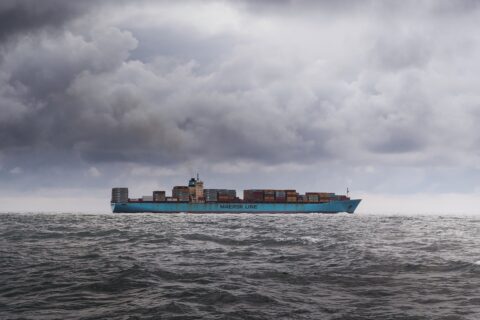If you are just starting out in the intenrational market then basic knowledge of Incoterms 2020 is vital for international shipping. In fact, though Incoterms play an important part in international shipping, many shippers still lack proper understanding of these.
Incoterms – what are these exactly?
Incoterms stand for International Commercial Terms, published by International Chamber of Commerce (ICC). Incoterms are basically a series of commercial terms and rules, that determine the responsibility and liability of the shipment of the goods between the buyer and the seller.
Simply put, Incoterms help in defining till what point the seller is responsible for the goods in transit and after which point the responsibility shifts on to the buyer (or importer) in international shipping of the goods. There rules reduce / eliminate the chances of dispute and confusion between the shipper and the receiver.
Incoterms should be considered during the sales contract discussions.
Types of Incoterms
While you may require using select 1 or 2 of them on a regular basis, having knowledge of all of them will help you ensure you are not at risk of losing. Incoterms are changed after every decade, as of January 2020, new Incoterms rules have come in play.
Incoterms for International Shipping can be divided into 2 categories on the basis of the mode of transport. Out of 11 rules, 7 rules are applicable to any mode of transport, while 4 of them are specifically for Sea or Inland waterway modes.
Seven Incoterms 2020 for Any Mode of Transport:
- EXW – Ex Works, leaves the seller with the least responsibility with regards to shipping cost and liabilities. The buyer takes full responsibility of costs and risks of shipping goods to the final destination from the seller’s warehouse, manufacturing plant or store.
- FCA – Free Carrier, means that the seller is responsible for the goods only until the shipment is handed over to the first carrier or the freight forwarder; this may include export documentation, customs formalities, transit cost as well as risk. After this, the buyer is entirely responsible for bearing the risk and costs from freight to customs and final delivery at the destination.
- CPT – Carriage Paid to, means that the seller takes responsibility to clear the goods for export and deliver them to the buyer’s terminal or specific carrier including the transportation cost, after which the responsibility and liability shifts to the buyer.
- CIP – Carriage and Insurance Paid To, in this rule, the seller is responsible to clear the goods for export and deliver them to the buyer’s terminal, including the transportation costs of goods delivery to the specified person or carrier, after which the responsibility and cost shifts to the buyer. In addition, the seller is also responsible for purchasing insurance coverage of goods till the destination point. As per the Incoterms 2020, the insurance cover needs to be at least 110% of the value of the goods as specified in Institute Cargo Clause, ClauseA
- DAP – Delivered at Place, the seller is responsible for clearing the goods for export and assumes the cost and risk involved in the delivery of goods to the seller’s destination country. It is after this that the seller takes responsibility for getting the goods cleared for import and unloading them at the destination country.
- DPU – Delivered at Place Unloaded, previously known as DAT – Delivery at Terminal, is generally used when there are multiple consignees of a consolidated container. Under this rule, it is the seller’s responsibility to undertake all the costs and risks associated with the delivery and unloading of goods at the specified destination. The buyer only bears the cost after the goods reach at the destination, including the cost of import clearance.
- DDP – Delivered Duty Paid, places all the responsibilities and cost of shipping on the seller. Right from loading the goods, clearance, transportation and delivery to the destination. The buyer is merely responsible for unloading the shipment at the final destination.
Four Incoterms 2020 Rules for Sea and Inland Waterway Transport
- FAS – Free Alongside Ship, the seller is responsible for clearing the goods for export and for delivering them at the port specified by the buyer. As the name goes, once the goods have been placed alongside the seller’s specified vessel at the specified port, the responsibility and cost shifts on to the buyer.
- FOB – Free on Board, under this rule the seller takes responsibility and bears cost for export clearance, transport of goods till the time the goods are loaded on the vessel, specified by the buyer at the named port of shipment. Once the goods are onboard, the liability and responsibility is taken by the buyer.
- CFR – Cost and Freight, seller is responsible for the export clearance and delivery of goods when they are loaded on the ship from the port of departure. Seller is liable to bear the cost of the goods / freight to the named destination port, however, it is the buyer who undertakes the risk of the freight once it is loaded on the ship. In such a case, the seller is not under an obligation to insure the goods.
- CIF – Cost, Insurance and Freight, is quite similar to CFR, except in CIF, the seller needs to insure the goods till the port of destination, at 110% of their value, as set by Institute Cargo Clauses and hand over all documents to the buyer. The buyer undertakes the risk of goods once they are on board and of the costs of unloading, import clearance, etc. from the time goods are onboard the ship.
EXW, FOB and CFR are the most commonly used Incoterms.
Choosing the Right Incoterm For Your International Shipping
Every Incoterm aims at clarifying gray areas in an international sales contract, by clearly identifying the responsibility and liability of the buyer and the seller, thus saving both from any dispute and legal complexities arising out of the trade.
It is important to identify which Incoterms is best suited for your sales contract. The driving force in choosing the best one or two largely depends on whether you are a shipper or receiver and the mode of shipment – it can be very confusing too! A freight forwarder like ProConnect Integrated Logistics can advise on the best suited Incoterms for your international shipping need.
Have a shipment to be sent to international markets? We can help, ask us for a quote.





 APP DOWNLOAD
APP DOWNLOAD
Thanks For Your Nice Post! Gorgeous creations.Thanks for providing great informative blog. I am very glad that I have read your article.